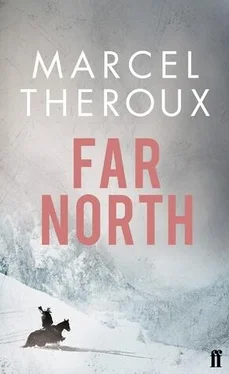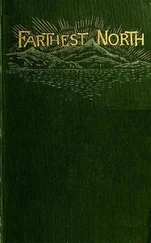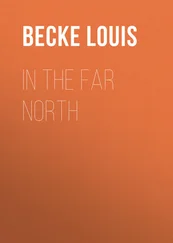I wanted them all to know, the women too, since it was done in their name. And I told them that we had come back empty-handed.
They heard me out politely and without interest, as if these were things that we didn’t speak of, but were plain to all of us.
When I was done speaking, Eben Callard thanked me for my account of the trip. ‘Sure you’ve been straight with us?’ he said.
I told him I had.
‘Because some of my men followed your trail into the bush and went digging.’
He signalled and someone brought a sack into the room. I knew what was in it. I’d buried it near the ashes of the fire the night before.
Eben Callard reached in and pulled out the mason jar with its waves of light. He held it up with both hands, as though he was going to bless it. The room went quiet enough that you could hear the faint hum of all that light moving.
‘I wish I had eyes to see it,’ he said, ‘because I hear it’s a pretty thing.’
WHY EBEN CALLARD needed to make theatre out of proving me a liar, I don’t know, but after he had, he had his men take me down to a room in the courtyard where they left me for a while, bound fast, before they hauled me out to question me.
They took to me another room with shades over the windows, where, in spite of the heat of the day, they had a stove lit which they’d rake from time to time with pokers, with the plain intention of letting me think they were going to burn me. They said they wanted to know why I’d liand where the thing had come from and why I had hid it, but the truth was, I think they were just itching to knock me around the place.
One of them stepped forward with a roll of papers which he spread out in front of me.
‘I want you to look carefully at these drawings and tell me if any of the things the prisoners found are shown on it.’
There were six sheets of thin waxy paper with drawings on them in a kind of faint blue ink. The pictures were drawn with a very exact hand and measurements and figures were inked in alongside them. There was writing in Russian, too, but I couldn’t read it. Some of the images I could recognize — there were suits and masks like the guards had been wearing, something that resembled a rifle — but others were simply too strange for me to make head or tail of.
I shook my head in a weary way and told them that all we’d found was the flask, and they had that.
*
They let me alone to sleep, and around noon the next day there was a knock on the door and someone slid in a plate of food. It was sausage, stale bread, and beetroot soup. I recognized the sausage as leftovers from our feast. It had grown more leathery and little drops of oil had gathered on its cut ends.
As I was eating, the door opened again and two guards showed Eben Callard to the spare seat in the room.
‘Make sure her hands are tied,’ he said.
The guards roped my arms to the chair and yanked the cord tight. They left the room at a signal. The shut of the door seemed loud over the silence that followed.
Being alone with him after all that time wasn’t as strange as you’d think.
‘How do you look, Makepeace? They tell me you’re marked.’
‘I look about the same,’ I said. ‘What happened to your eyes?’
‘You want the long answer or the short one?’
I told him I didn’t mind either.
He passed his hand over the table top in a steady, thorough way until it lighted on the handle of the spoon. With his other, he found the soup bowl, then he stirred it up, until the broth went cloudy like his sightless eyes.
‘Before Evangeline, you know, we had a big property outside of Esso. That was the place we left America for. It was really something. The earth’s volcanic and rich and there are hot springs right under the city. You just sink a pipe and you’ve got hot water. We had heated greenhouses, tomatoes all year. We were on the side of a mountain you could ski down and only a couple of hundred miles from Peterpaul.’ He sighed with the recollection of it. ‘And I bet you thought life was good in Evangeline.
‘Then all the changes came. We got overrun. There were Russians and Evenki and some Koreans who had been there from the beginning. They formed a militia and kicked everyone else out. They didn’t care if we had a title to the land. For the next five years it was Snakes and Ladders with no ladders. First run out of Esso. Then run out of Evangeline by James Hatfield’s people.
‘You know that we lit out of there with nothing? A bunch of men came to our house with torches. They said someone had raped James Hatfield’s girl and I was supposed to have done it.
‘I offered to go out and talk to them, but my father said not to. It was the middle of the night. There was no reasoning with them. They’d have strung me up there and then. While we were arguing about what to do, they set the roof on fire. We grabbed what we could and escaped out the back.
‘It was my nineteenth birthday. I should be bitter about it, but I’m not, because that was the start of all the good things that happened to me.’
He kept stirring, sifting through the contents of the bowl in silence, then he let the spoon drop.
‘We had to set out for Magadan on foot. It was summertime. I don’t know how we stayed alive on that highway. The things I saw made life in Evangeline seem like Sunday school. A couple of times we skipped off the road and travelled in the taiga, getting eaten alive by the insects.
‘We got a ride part of the way with a trader — a Jew from Odessa called Eli Rozenbaum who was on his way back from Polyn. We were lucky to find him. He drove us through the worst of it. You know what a vezdekhod is? He had one of those with its cab piled up to here with weapons — guns and things I’d never seen before. There were roadblocks in those days, but they were built to stop foot traffic. Eli drove at night and whenever he came across one, he’d floor the thing and crash right through it.
‘He helped us on a boat to Providence, but he warned us about going there. We told him we were planning on paying some Chukchi to take us across to Nome. My mother had family in Barrow, if we could get there. Before he left us he gave my father a pistol to protect himself.
‘The voyage took two weeks. You ever been to Providence? It’s a hellhole. There used to be a fleet there, but they’d all been discharged. The town was crawling with hungry sailors, looking for money, looking for a way back west. Ugly, stained buildings. The Chukchi were terrified of the Russians and wouldn’t come near the place. There was one warehouse full of freeze-dried potato that had been rations for the fleet. A gang of sailors selling it off. We paid them a pair of gold earrings for enough to feed four of us.
‘It was stupid of us, but we were desperate. They marked us out as worth robbing. We hunkered down that night in an abandoned apartment. We were asleep when some sailors broke in and started to beat up my father.
‘In the struggle, the pistol rolled out of his pocket and I let off three shots at them. They were home-made shells. The first two killed one of the sailors. The third blew up in the breech and the metal splinters took one of my eyes out.
‘The noise of it scared them out of there. We left town as soon as we could and went on foot to a Chukchi village on the Bering Sea.
‘My father clung on for a few days. My mother gave the Chukchi all we had to take us across to Diomed. You know there are Chukchi on Diomed, like us, neither Russian nor Yankee?
‘We buried my father at sea. Just slipped his body into the water. We felt it was better that way. We didn’t want him to lie in foreign soil. What I would have given to bury him in America. We were near enough Alaska to be able to smell it, but with no way to get there.
Читать дальше












